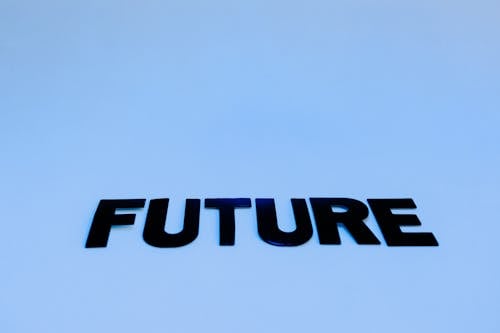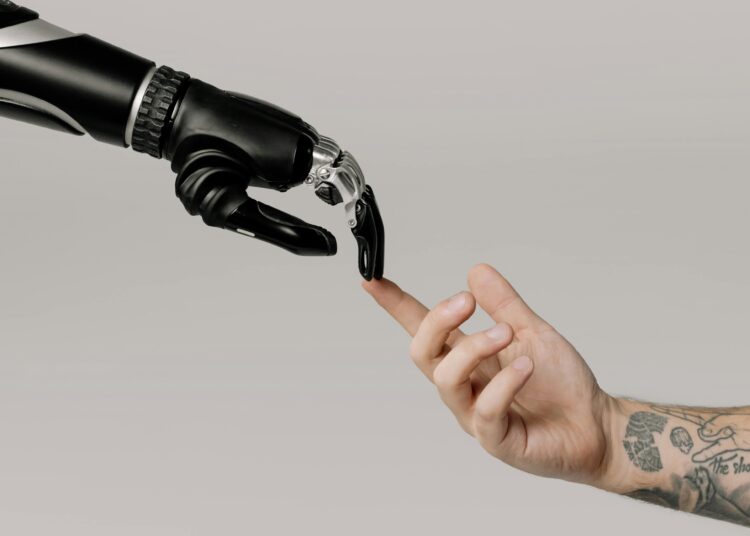Traffic forecasts, personalized advertising, movie ratings on Netflix—many people fail to realize that artificial intelligence is already permeating almost every aspect of our lives. However, with the recent hype surrounding Chat GPT, the topic is being brought more into focus. But what is the current state of artificial intelligence in the hospitality industry? KTCHNrebel has investigated this for you.
According to a report by Accenture, artificial intelligence (AI) could double annual growth by 2035. This estimate was corroborated by a study from PwC, which stated that AI could contribute $15.7 trillion to the global economy by 2030. Impressive, isn’t it? Indeed, these numbers highlight the significant impact that AI already has on society and emphasize how crucial it is for every industry to take note of this development.

Despite these positive developments, there are also challenges and potential negative impacts of AI on the economy, particularly concerning the job market. According to a report by the Organisation for Economic Co-operation and Development (OECD), around 14% of jobs in 21 countries are at high risk due to automation.
Nevertheless, in a world of continuous technological advancement, AI has the potential to transform every industry. From the automotive industry to healthcare, it has already made significant strides and created innovative solutions. In fact, even the hotel and hospitality industry has undergone remarkable evolution in our digital era.
For years, the hospitality industry has faced numerous challenges, from changing customer preferences to growing competition. Amidst this turmoil, AI has proven to be a powerful tool for helping businesses improve service, streamline operations, and provide personalized experiences.

This article is the first part of a two-part series on AI in the hospitality industry, providing a comprehensive overview of the latest developments and innovations in AI for the hotel and hospitality sector. The journey towards digital transformation has begun, and artificial intelligence plays a central role. Let’s delve into the fascinating world of AI and discover how it is revolutionizing the way hotels and restaurants operate and delight their guests.
WHAT EXACTLY IS AI?
While the buzzword AI is becoming increasingly common, it is important to clarify what exactly lies behind it. Oliver Feiler, Head of Market Intelligence at Rational, who also deals with AI, emphasizes the importance of clearly defining the term. “Not everything claimed to be AI is actually AI. AI in terms of computer-assisted learning and the resulting applications has been around for quite some time. Simply put, AI collects information, recognizes patterns of frequency, and can use this information to draw conclusions. The more structured and comprehensive the available data is, the easier and more efficient a self-learning system can describe conditions, derive predictions for future events, and possibly even initiate solutions on its own. And this is indeed relevant for the hotel and hospitality industry in some areas.” Unlike traditional software, which is based on predefined rules and instructions, AI aims to learn independently, identify patterns, and gain insights from data. The development of AI is based on algorithms and mathematical models that enable computers to process data and draw conclusions from it.

WHAT ARE THE ADVANTAGES FOR THE HOTEL AND HOSPITALITY INDUSTRY?
“Anyone who believes that there are no exciting use cases for AI is mistaken,” emphasizes Bilâl Tahris, Flowit AG. He cites a few examples. “Consider visitor forecasts, for example: Based on historical data, trends and patterns can be calculated, which can be used to predict visitor flow in the future, depending on the season, weather, and so on. Another example is the personalization of offers and services. With the help of AI, hoteliers and restaurateurs can analyze the behavior and preferences of their guests and derive personalized offers and services from them, such as personalized recommendations for restaurants, excursions, or activities.”
It gets exciting when you take a step further and look at optimizing operational processes. “By automating processes such as ordering and payment systems or predicting demand and inventory needs, hoteliers and restaurateurs can save time and resources, resulting in higher margins,” says Tahris. When we deal with inventory management or menu design, it quickly becomes apparent that AI can make a significant contribution to the success of a company. This is evident at Rational, which already uses this analytics in the area of maintenance and service. “Since we can make reliable predictions for equipment wear based on the available data, we can minimize machine downtime. AI is also interesting for better meal planning.













Discussion about this post